 General Session Speakers
General Session Speakers
Thursday, October 24, 2024
Opening General Session (8:00 am - 9:30 am)
Title: Gayle G. Arnold Lecture: Thinking Big for Disability Inclusion in Healthcare
Presentation Description: In this presentation, Dr. Arnold will share her personal experience as a patient and now healthcare provider with a physical disability. She will share the challenges faced to entering into the field of medicine while providing optimism and benefits to patients for the inclusion of individuals with disabilities. Along the way she will share the moral imperative we all have toward decreasing the barriers to equitable healthcare for all our patients and especially those with disabilities.
Learning Objectives:
- Describe the barriers to equitable healthcare experienced by individuals with disabilities
- List common barriers to inclusion of persons with disabilities in the health professions as experienced by a physician with a physical disability
- Describe the benefits that clinicians with disabilities bring to the care of all patients
- Define the steps healthcare organizations can take to improve disability inclusion
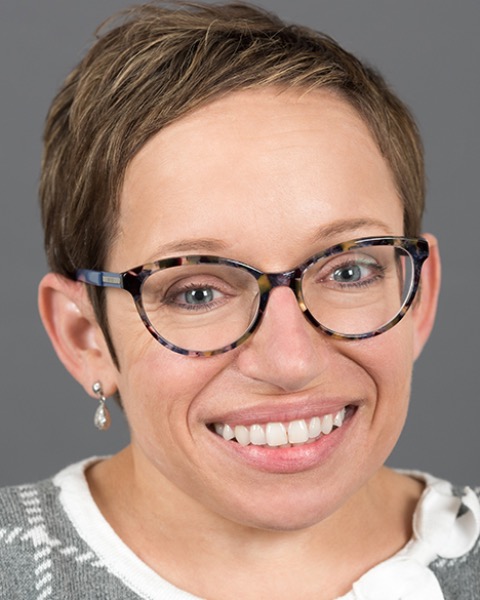 Presenter: Jennifer Arnold, MD, MSc
Presenter: Jennifer Arnold, MD, MSc
Dr. Jennifer Arnold is a pediatrician, neonatologist, and healthcare simulation leader at Boston Children’s Hospital. A native of St. Petersburg, FL, Arnold received her undergraduate degrees in biology and psychology from the University of Miami. She completed her medical degree at Johns Hopkins School of Medicine in 2000 and attended a pediatric residency program at the University of Pittsburgh School of Medicine and the Children’s Hospital of Pittsburgh in 2003. Arnold was a National Institutes of Health postdoctoral scholar at the University of Pittsburgh’s Safar Center for Resuscitative Medicine from 2006 to 2007. During her fellowship in neonatology at the University of Pittsburgh Medical Center and Magee-Women's Hospital, she also pursued a Master of Science in medical education, graduating in 2009.
A founding director of the simulation centers at both Texas Children’s Hospital and Johns Hopkins All Children’s Hospital, Dr. Arnold has a passion for innovating the application of healthcare simulation as a patient safety tool. Since 2022, she has served as program director for the Immersive Design Systems at Boston Children’s Hospital, the primary pediatric teaching hospital for Harvard Medical School. She also hosts the hospital’s “Boston Children’s Answers Parentcast Podcast.”
Dr. Arnold’s passion is to advocate for pediatric healthcare and raising awareness for individuals with disabilities. Dr. Arnold has a rare type of dwarfism called Spondyloepiphyseal Dysplasia Type Strudwick (which involved more than 30 orthopedic surgeries). She is a 10-year cancer survivor. Not only does she have a disability and has personally overcome extraordinary physical and health obstacles, but she is the mother of two kids with medical complexities, both with skeletal dysplasia. With her husband, Bill Klein, and their two children, they were featured on TLC’s docuseries “The Little Couple,” an unscripted program that provided a window into the family’s personal and professional lives.
Thursday, October 24, 2024
Afternoon General Session (2:30 pm - 4:00 pm)
Title: AACPDM and Mac Keith Basic Science Lecture: Deep Brain Stimulation for Neurological and Neurodevelopmental Disorders in Children
Presentation Description: The ability to modulate brain circuitry through deep brain stimulation (DBS) is expected to have a play a transformative role in the care of children with neurological and neurodevelopmental disorders. The speaker will first discuss current and emerging indications for DBS in children, including dystonia and epilepsy. Leveraging advancement in brain network mapping, artificial intelligence and brain-computer interfaces, the speaker will discuss novel closed-loop paradigms to understand and modulate aberrant neural circuitry underlying several neurodevelopmental disorders in children.
Learning Objectives:
- Discuss critical role of deep brain stimulation (DBS) in the management of intractable neurological disorders such as dystonia and epilepsy.
- Describe preclinical models of DBS for severe self-injurious behaviours in the context of autism spectrum disorder and translational research in pediatric populations.
- Discuss closed-loop neuromodulation paradigms for attention-related disorders in children.
- Highlight emerging understanding in brain network mapping, artificial intelligence and brain-computer interfaces in expanding DBS to neurodevelopmental disorders.
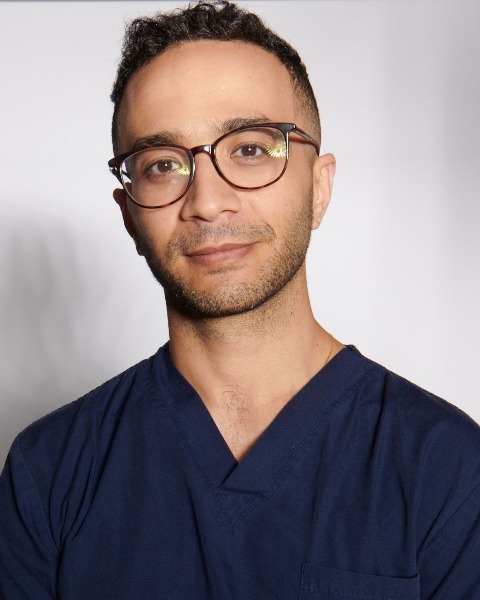 Presenter: George Ibrahim, MD, PhD, FRCSC, FAANS
Presenter: George Ibrahim, MD, PhD, FRCSC, FAANS
Dr. George Ibrahim is a pediatric neurosurgeon and the Abe Bresver Chair in Functional Neurosurgery at the Hospital for Sick Children. He is an Associate Professor at the Institute of Biomaterials and Biomedical Engineering, the Institute of Medical Sciences and the Department of Surgery at the University of Toronto. He is also a Senior Scientist in the Neurosciences and Mental Health program as the SickKids Research Institute and and co-leads the Posluns Centre for Image Guided Innovation and Therapeutic Intervention.
His clinical and research interests include the surgical treatment of medically intractable epilepsy, spasticity and movement disorders in children. He plays a leading role in the comprehensive epilepsy, dorsal rhizotomy and deep brain stimulation programs at SickKids. His research lab is dedicated to the study of neural networks in children with epilepsy and neurodevelopmental disorders through a combination of connectomic, computational neuroscience and machine learning approaches. He also leads several novel, translational clinical trials of neuromodulation in children. His work has been published in over 250 peer- reviewed journals and is funded by several organizations, including the Canadian Institutes of Health Research. Dr. Ibrahim received several awards and recognitions including being named as one of Canada's Top 40 under 40 in 2019.
Friday, October 25, 2024
General Session (9:15 am - 10:15 am)
Title: Presidential Guest Lecture: Do We Need a New Definition of Cerebral Palsy?
Presentation Description: The question of the need for revision of the CP definition arises with our expanding knowledge and the evolution of many other factors, some specific to CP, others relating to descriptions of neurological conditions. Progress in genetics and new findings relating to inflammation and metabolism enhance etiological understanding. There is also improved clinical documentation worldwide, further clarifying clinical manifestations and raising awareness about CP-related issues on a global scale. There is better documentation of adults with CP, and adult services are becoming more involved. Societal and cultural understanding of persons with CP is increasing, and people with lived experienced are acquiring greater ownership of their condition. This is paired with a revolution in the concepts and language of disability, and heightened realization of ableist prejudice.
Learning Objectives:
- Should we continue to use the term ‘cerebral palsy’ (CP)? Many people – including individuals with CP – find it useful. But questions remain. Such as, is it a disorder or a way of being?
- Is it appropriate and useful to regard CP as a spectrum? How operational can or should a definition be?
- Can we better delineate timing and non-progressiveness? How do we describe motor and non-motor features?
- Should we emphasize the lifelong course and the impact on participation? How do we account for the medical, social, political, and personal dimensions of CP?
Presenters:
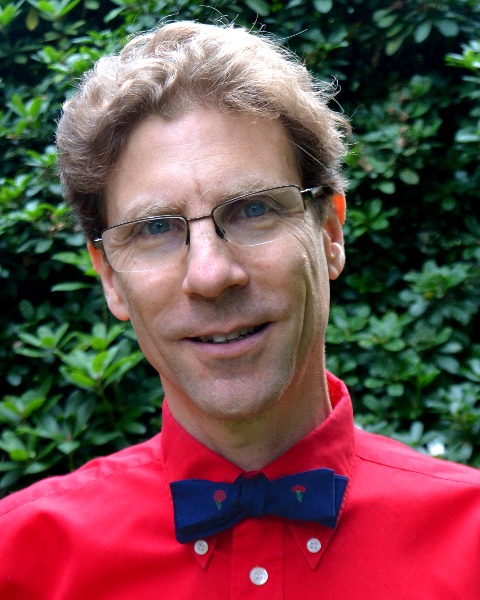 Bernard Dan, MD, PhD
Bernard Dan, MD, PhD
Bernard Dan, is a neurologist, pediatric neurologist and rehabilitation specialist at Inkendaal Rehabilitation Hospital near Brussels, Belgium, professor of neuroscience and developmental psychology at the Université libre de Bruxelles, chair of the European Academy of Childhood-onset Disability, and Editor-in-Chief of the AACPDM official journal Developmental Medicine and Child Neurology. He is fellow of the Royal College of Physicians (London), ordinary member of the Académie royale de Médecine de Belgique, and commander of the Order of Leopold (Belgium). His clinical and research interest includes cerebral palsy, neurogenetic conditions and neurophysiology. He received a number of national and international awards, including the John Stobo Prichard Award and the Elsass Prize. He authored over 300 journal articles and several reference books on childhood disability (including Cerebral Palsy: Science and Clinical Practice) and on bioethics. He served as scientific curator for several art exhibitions relating to disability and authored novels and short stories.
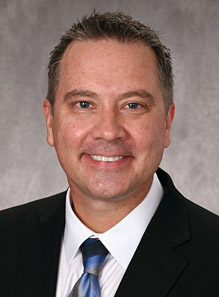 Michael Kruer, MD
Michael Kruer, MD
Michael Kruer is a pediatric movement disorders neurologist and human geneticist. He serves as an Associate Professor of Child Health, Genetics, Neurology and Cellular & Molecular Medicine at the University of Arizona College of Medicine – Phoenix. He also serves as director of the Pediatric Movement Disorders Program at the Barrow Neurological Institute, Phoenix Children’s Hospital. Michael’s lab is dedicated to understanding how genetic mutations lead to both common (cerebral palsy) and rare movement disorders in children and how genetics can serve as a springboard to improvements in both diagnosis and treatment. Work in his lab is highly multidisciplinary and connects genomics, phenomics, stakeholder engagement, and molecular and cellular neuroscience. Michael’s research has been supported by numerous public and private foundations, philanthropy, industry collaborations, and federal grants, and his work has appeared in highly respected publications including the American Journal of Human Genetics, Annals of Neurology, Brain, Pediatrics, Neurology and Nature Genetics. The Kruer lab is currently leading an NIH-funded genomics initiative within the Cerebral Palsy Research Network (a nationwide collaborative of palsy centers of excellence) that leverages a self-contained electronic iConsent platform to facilitate network-wide data-sharing for genetic discovery in CP.
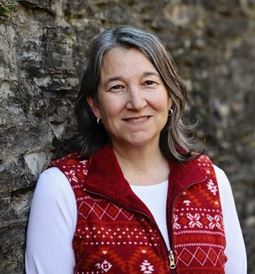
Lynne Fogel is a parent and past-chair of the AACPDM Community Council. She lives in Blacklick, Ohio, with her husband and two daughters, and works for the Ohio Department of Health as a Parent Consultant. For more than twenty years, Lynne has been a peer mentor and family supporter to others living with a diagnosis of Cerebral Palsy - beginning in 2002 when her daughter with CP was 2 years old, by startng a parent support group for CP in Columbus, OH. She has been a supporter and representative of Pedal with Pete, a Columbus-based organization that funds CP research, and currently serves on the Community Engagement Committee of the CP Research Network. Lynne was a hub team member/family representative for the first CP ECHO series at Nationwide Childrens' Hospital, and is happy to lend a voice of lived experience wherever it will inform the work of people whose job involves improving the lives of people with CP and other disabilities.
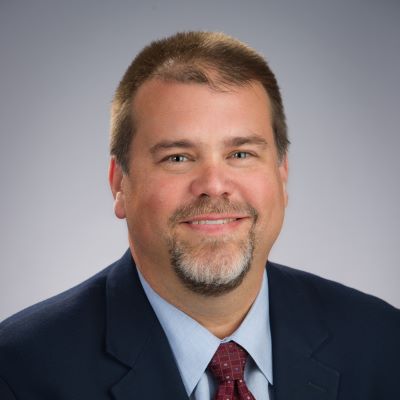 Wade M. Shrader, MD
Wade M. Shrader, MD
Wade Shrader, MD is a board-certified orthopedic surgeon in orthopedics. He is a Professor in Orthopedic Surgery and Pediatrics at Thomas Jefferson University. He graduated from University of Chicago, Pritzker School of Medicine, completed orthopedics residency at the Mayo Clinic and completed a Pediatric Orthopedics clinical fellowship at Texas Scottish Rite Hospital for Children. Current employment is with Nemours Childrens Health – Delaware (Formerly known as the A.I. Dupont Hospital for Children) Department of Pediatric Orthopedics. He is the Division chief of the Nemours Cerebral Palsy Center, and the Freeman Miller Endowed Chair of Cerebral Palsy. He is also currently the president of the American Academy of Cerebral Palsy and Developmental Medicine. He specializes in treating children with cerebral palsy and similar childhood onset disabilities. Areas of interest includes scoliosis, spinal deformity, hip deformity, lower extremity, gait analysis, family-centered care and psychosocial issues, and patient reported outcomes. He is an active member of American Academy of Cerebral Palsy and Developmental Medicine, Cerebral Palsy Research Network (CPRN), American Academy of Pediatrics, American Academy of Orthopedic Surgeons, Pediatric Orthopedic Society of North America, NIH Medical Advisory Board for the National Center for Medical Rehabilitation Research (NCMRR), and Scoliosis Research Society. Research study groups include the CPRN, CP Hip Outcomes Project (CHOP), and RINO registry (CP Foot Multicenter Study).
Saturday, October 26, 2024
Closing General Session (11:30 am - 1:00 pm)
Title: Chambers Family Lifespan Lecture: Woven Together: Embedding Lived Experience to Advance Research and Healthcare
Presentation Description: In this presentation, Dr. Buchanan and Dr. Cross will share their parallel and interwoven journeys to advance patient and family engagement in health research and care. Recognizing the importance of collaborating for change, their collective efforts are driving a culture shift that disrupts conventional research practices, by elevating the patient and family voice, ultimately impacting the way health care is delivered.
Learning Objectives:
- Recognize the importance of partnership in care
- Understand the value of engaging persons with lived experience in research
- Learn about opportunities to further develop patient and family engagement skills
- Identify next steps for championing engagement in research and care
Presenters:
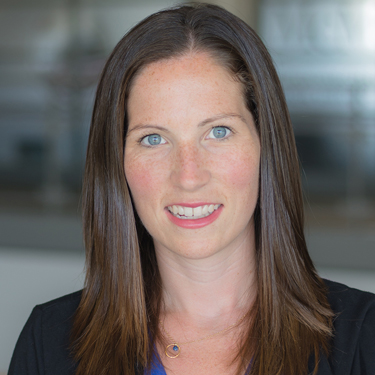
Andrea Cross, PhD
Dr. Andrea Cross (she/her) is an Assistant Professor in the Department of Pediatrics at McMaster University.
Dr. Cross graduated in 2011 from Wilfrid Laurier University with a Master’s of Science in Kinesiology and in 2018 with a PhD in Rehabilitation Science from McMaster University. Patient-Oriented Research (POR) and Implementation Science are foundational to her program of research.
During her post-doctoral fellowship, Dr. Cross co-led the development of three large implementation science/POR Programs at CanChild Centre for Childhood Disability Research, including the Family Engagement in Research (FER) Training Program, the F-words for Child Development Knowledge Translation and Research Program, and the ENVISAGE Program. Her research aims to use implementation science to support the dissemination and implementation of family-centred and family-engaged best practices in the field of neurodevelopmental disability and child health.
Dr. Cross currently holds a Canadian Institutes of Health Research Patient-Oriented Research Transition to Leadership Award (2020 – 2027). Dr. Cross also teaches in the School of Rehabilitation Science and is an executive committee member of McMaster’s Master of Health Management Program.
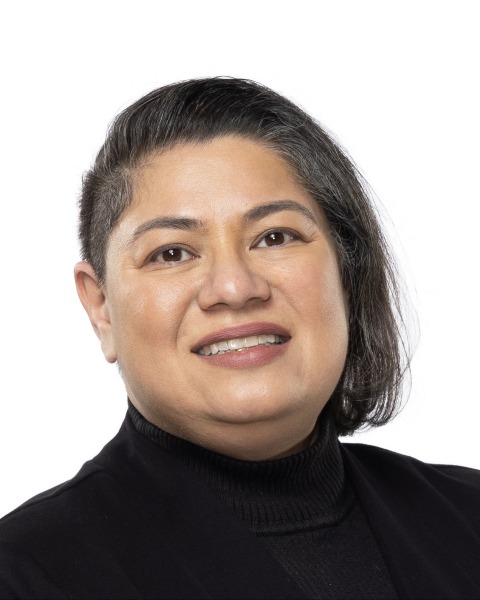 Francine Rabbito Buchanan, MLIS, PhD
Francine Rabbito Buchanan, MLIS, PhD
Dr. Francine Buchanan is the Senior Manager, Patient, Family & Community Engagement at The Hospital for Sick Children (Ontario, Canada) and the Ontario Child Health Support Unit (OCHSU). In this role, Dr. Buchanan supports a Patient-Centred Health Care philosophy by ensuring patients and families can partner with the healthcare system to co-create a future for children’s health care that reflects their lived experiences. Her goal is to ensure patient, family and community voices are key drivers for change in healthcare.
Dr. Buchanan is a sought-after speaker and storyteller on the value and methods of including the patient and family perspective in health system design and research. Her research and teaching interests include Patient Engagement, Shared Decisions-Making, Co-Design and Patient-Oriented Research Methods. She brings a diverse background of skills and experience to her work, as a parent to a child with complex healthcare needs, a health researcher, a parent research partner, and a former strategy consultant. Her educational background includes an Honours Bachelor of Arts in English and Philosophy from McMaster University, a Masters in Library and Information Science from the University of Western Ontario and a PhD in Health Services Research from the Institute of Health Policy, Management and Evaluation, University of Toronto. She also holds an academic appointment as an Assistant Professor at the Institute of Health Policy, Management and Evaluation (IHPME) at the University of Toronto.
Important Dates
December 5, 2023
Abstract Submissions Open
January 31, 2024
Abstract Submissions Deadline
April 2024
Presentation Acceptances Sent Out
May 20, 2024
Registration Opens
June 30, 2024
Early Bird Registration Closes
October 21, 2024
Advance Registration Closes
October 23-26, 2024
78th Annual Meeting
On-site Registration Available

